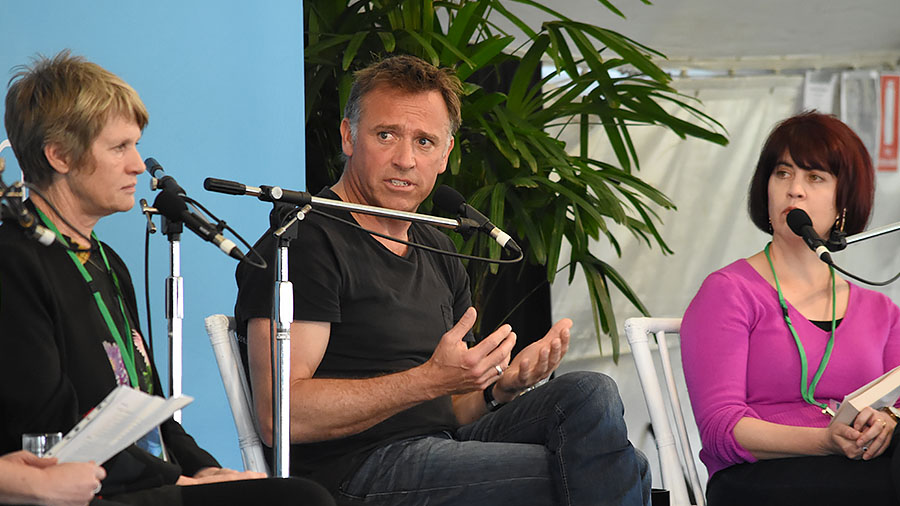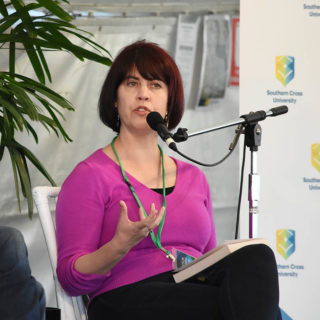Discovering the value of research in writing

Who doesn’t love a bottle of champagne on a Sunday morning? This bunch certainly didn’t mind popping one open to welcome award-winning author Jessica White to her very first panel at Byron Writers Festival.
It was a bubbly way to celebrate the final day of the Festival.
After taking a few deserved sips, session chair Lynda Hawryluk began by talking about the value in research in writing with reference to the three panel members who joined her in raising a glass.
Northern Rivers-based author Jesse Blackadder frequently travels to sites around the world to research her books. Twice she has stayed at the Australian base in Antarctica.
Blackadder gave her insight into how being an ‘experimental researcher’ drives her strong desire to find and write a story: ‘You find that little gem and say ‘oh, there it is’, and that’s when it begins.’
Blackadder’s Chasing the Light: A Novel of Antarctica was inspired by her curiosity about women from the early 1900s and the Antarctic landscape.
‘That’s why we write,’ Blackadder said. ‘We come to something that intrigues us and we say ‘how can we explore this?’
It is her ability to dive into her research and question the connection between her story and its relationship to the history that makes her storytelling skills widely valued and admired.
Similarly, Jock Serong, a novelist and freelance writer who has combined fictional techniques with Australian historical fact in his latest book, mentioned his ‘terrible misconception’ that historical research comes with white-gloves.

‘If you’re inventive enough about where information might be, it is available to everyone,’ Serong said.
A historical novel/crime thriller, Preservation is based on the true story of the wreck of the Sydney Cove, Serong’s latest novel was written as part of his PhD in creative writing, and draws on diary entries from one of the shipwreck’s survivors, a Scottish tea merchant and supercargo, William Clarke.
‘What I thought was a small idea was actually a story that got bigger and bigger,’ Serong said.
He said this came down to weaving together his reality and imagination while remaining factual and respectful in his descriptive language.
While information is a privilege and explorative activity that we can engage with, research can often lead to answers that are difficult to comprehend.
‘Research is a dance between the fact and the fiction… you have to ask yourself “what does this mean to me?”’ Blackadder said.
Sometimes, the research takes you into more personal relationships with the material you uncover as well.
As a four-year-old, White lost most of her hearing. Researching this life event was something she could do through personal records and family.
But it wasn’t until she threw herself into more thorough and less-personal research for her 2019 memoir Hearing Maud that she truly understood her history.
White uses the experiences of Maud Praed, the deaf daughter of nineteenth-century Queensland expatriate novelist Rosa Praed, as the vehicle through which she uncovered her own story, which she describes as ‘a block of wood’.
‘[I] just had to continue carving [my story] back… to see how that was impacting how I move through the twenty-first century,’ she said.
Being cast as a minority from a young age left White in the position of someone that is always observing from afar instead of being included.
‘Writing saved me. I was always isolated so I would read to escape and write to alleviate my emotions.’
Stacey Schwenk is a Southern Cross University Digital Media and Communications student. Southern Cross University students have reported on Byron Writers Festival since 2010. Find out where a degree from Southern Cross University can take you.
